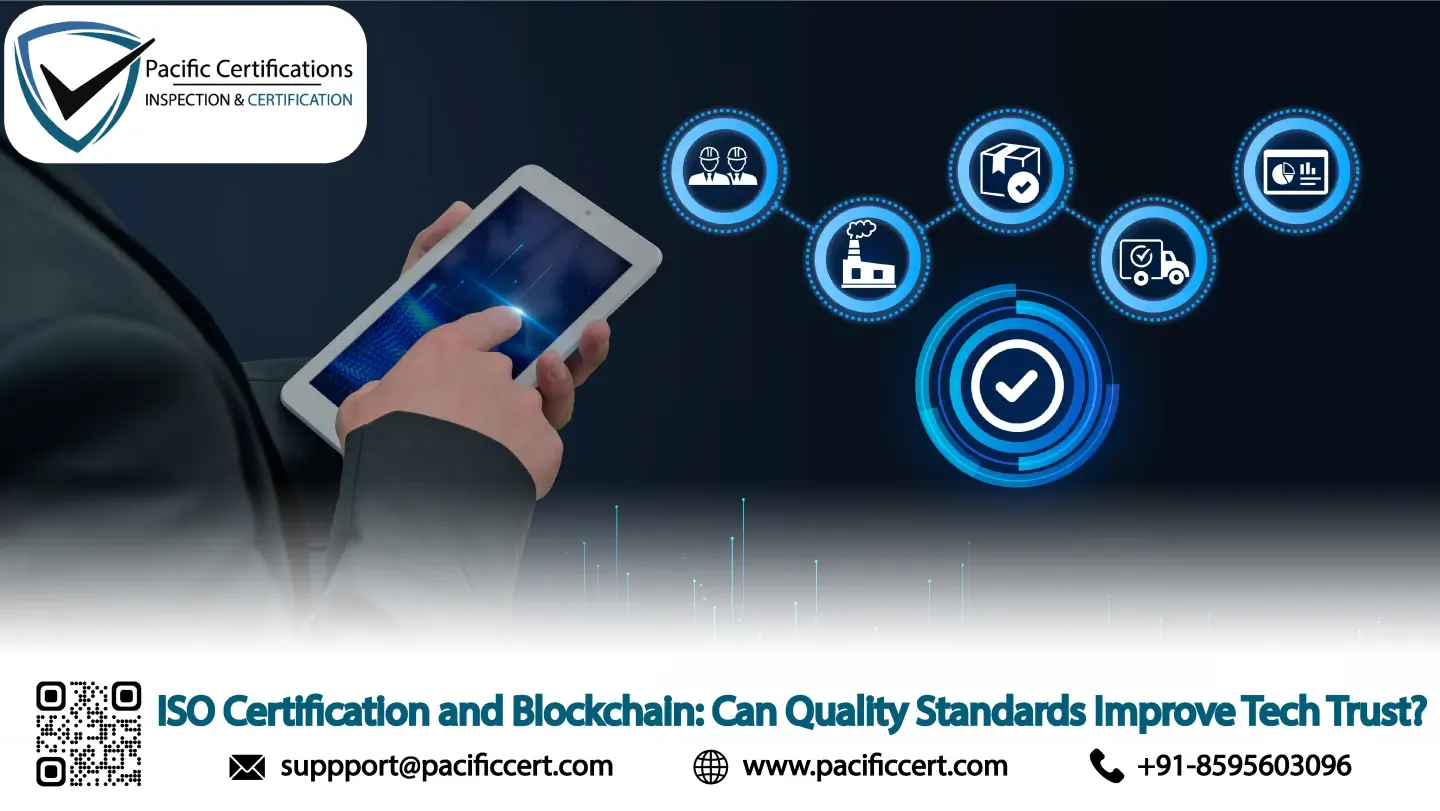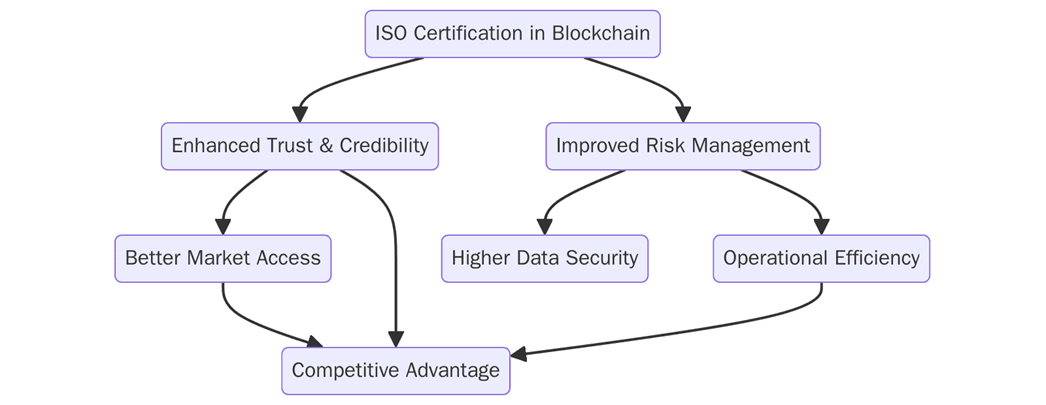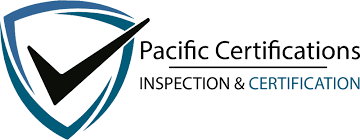ISO Certification and Blockchain: Can Quality Standards Improve Tech Trust?

Introduction
Blockchain technology has moved far beyond cryptocurrencies, it now underpins systems for supply chain management, digital identity, smart contracts, and data integrity. Yet, despite its transformative potential, blockchain adoption faces ongoing challenges around trust, interoperability, security, and governance.
According to Deloitte’s Global Blockchain Survey, over 70% of executives cite “lack of standardization and regulatory clarity” as major barriers to enterprise adoption.
This is where ISO certification plays a pivotal role, providing a recognized, globally accepted framework for ensuring quality, consistency, and trustworthiness in blockchain design, deployment, and management.
Start your ISO certification journey with Pacific Certifications and strengthen trust in your blockchain initiatives.
Blockchain builds transparency through code — ISO certification ensures that the code itself follows trusted, ethical, and consistent standards— Pacific Certifications
Quick summary
ISO standards such as ISO 9001, ISO/IEC 27001,ISO/IEC 27701, ISO 31000, ISO 37301, and ISO/IEC 42001 bring structure, accountability, and assurance to blockchain operations. By embedding internationally recognized management systems into blockchain projects, organizations can enhance data security, risk governance, privacy protection, and user confidence.
Why ISO certifications matter for blockchain?
Blockchain promises immutability and transparency, yet public doubt persists due to frequent security breaches, token frauds and governance gaps. A 2023 Chain analysis report estimated that crypto-related hacks caused over $3.8 billion in losses worldwide, making regulators and enterprises cautious about adoption. ISO certifications address this gap by providing independent verification that blockchain systems are managed with consistent policies, risk controls and performance benchmarks. ISO 9001 shows that a blockchain platform has a documented quality management system, ISO/IEC 27001 ensures information security controls against cyberattacks, ISO/IEC 27701 demonstrates compliance with privacy regulations such as GDPR and ISO/IEC 42001 supports responsible AI governance in blockchain-enabled ecosystems. Together, these certifications reduce risks, increase transparency and accelerate adoption across regulated industries like finance, healthcare and logistics.
Applicable ISO standards for blockchain
What are the requirements for ISO Certifications in blockchain?
Before achieving certification, blockchain institutions must implement systems that align with international standards for quality, security and governance. The requirements ensure trust is built through documentation, audits and measurable improvements. Below are some of the key requirements:

1. Define scope — e.g., blockchain nodes, smart contracts, wallets, or enterprise platforms.
2. Establish policies for quality, security, privacy and continuity.
3. Conduct risk assessments for vulnerabilities such as hacks, fraud or data leaks.
4. Document processes including transaction validation, code updates and access control.
5. Train teams on compliance responsibilities and secure coding practices.
6. Maintain evidence such as incident logs, QA reports and monitoring dashboards.
7. Run internal audits and correct nonconformities.
8. Review KPIs such as uptime, incident closure time and SLA compliance.
9. Demonstrate continual improvement through periodic reviews and updated controls.
How to prepare for ISO certification in blockchain?
Preparation involves mapping blockchain processes against ISO requirements and building strong evidence for auditors.
1. Conduct a gap analysis of existing blockchain practices vs ISO standards.
2. Create governance policies for code quality, node management and security.
3 Train developers, admins and compliance officers.
4. Document evidence — QA tests, penetration test results, audit trails.
5. Pilot internal audits to identify weak areas.
6. Track KPIs such as transaction latency, error rates and audit closure times.
7. Engage leadership to monitor objectives and allocate resources.
Certification audit
Certification for blockchain institutions follows a staged audit approach. Below are the steps followed:
Stage 1 audit: Reviews policies, governance processes and documented risk assessments.
Stage 2 audit: Evaluates blockchain implementation across nodes, contracts and user services.
Nonconformities: Must be corrected with documented proof before certification approval.
Management review: Confirms leadership commitment to quality and trust.
Final certification: Granted once compliance gaps are closed.
Surveillance audits: Conducted annually to ensure ongoing alignment.
Recertification audits: Occur every three years to renew certification.
Tip: Start with ISO/IEC 27001 and ISO 9001 to build security and quality foundations — then expand into ISO 27701 and ISO 37301 for compliance and privacy assurance as your blockchain ecosystem scales.
What are the benefits of ISO Certifications in blockchain?
Certification strengthens blockchain’s credibility by linking decentralized trust to centralized global standards. The benefits include:

Users and regulators gain assurance that blockchain systems are independently verified.
Certified providers are more likely to be adopted in regulated industries.
Security incidents and fraud risks are minimized through standardized controls.
Certification signals accountability and maturity to venture capital and institutional investors.
Business continuity and uptime SLAs are strengthened with ISO 22301.
As blockchain evolves into mainstream enterprise infrastructure, ISO-driven governance is becoming central to its credibility. Gartner predicts that 60% of enterprise blockchain solutions will adopt at least one ISO-aligned standard by 2030, primarily for security, privacy, and compliance.
The integration of ISO/IEC 27001 and 27701 is emerging as a minimum requirement for blockchain systems handling personal or financial data. Moreover, AI-integrated blockchains are increasingly turning to ISO/IEC 42001 for algorithmic transparency and accountability.
Organizations adopting multiple ISO frameworks report faster regulatory approvals, higher investor confidence, and better audit readiness, positioning ISO certification as a cornerstone for building trust in decentralized technologies.
How Pacific Certifications can help?
Pacific Certifications, accredited by ABIS, provides independent audit and certification services for blockchain, fintech, and IT organizations globally.
Pacific Certifications can help by:
Conducting audits for ISO 9001, ISO/IEC 27001, ISO/IEC 27701, ISO 31000, ISO 37301, and ISO/IEC 42001.
Issuing accredited ISO certificates accepted by regulators and enterprise clients.
Supporting integrated certification for blockchain, fintech, and AI-enabled platforms.
Contact Us
Request your ISO audit plan and fee estimate, we will help you map Stage 1 and Stage 2 timelines and evidence requirements for your blockchain initiatives. Contact us at [email protected] or visit www.pacificcert.com.
Read more: Pacific Blogs

Author: Alina Ansari
